BrainFutures is increasing the range of therapeutic and well-being options available to the public by bridging the gap between research, innovation, and practice and by providing rigorous analysis about advances in brain health that are transforming productivity, learning and recovery outcomes.
BrainFutures is a national nonprofit dedicated to improving human outcomes by assessing and advancing the practical applications of new scientific understanding of the brain. As a citizen advocacy organization, we enlist specialists to offer rigorous assessment of—and education about—brain-based interventions that target specific segments of society. By providing objective evidence-based information about what works and clearing policy and practice pathways, we aim to maximize human potential and ameliorate pressing social challenges.
BrainFutures was launched in 2015 by the nation’s second oldest mental health advocacy organization, the Mental Health Association of Maryland (MHAMD). For more than 100 years, MHAMD has addressed the mental health needs of Marylanders of all ages through programs that educate the public, advance public policy, and monitor the quality of mental healthcare services. Building on this success, and bolstered by a cross-disciplinary advisory board of leading experts, BrainFutures brings together diverse stakeholders, policymakers, funders, and influencers to accelerate and scaffold national adoption of effective practices targeting mental health and youth executive functioning.
Breakthroughs in our understanding of the brain have the potential to improve learning outcomes for children and enhance treatment for a mental health or substance use problem.
BrainFutures writes evidence-based issue briefs and releases recommendations that fill knowledge gaps related to brain-focused applications targeting the above segments of society. These educational resources highlight the latest advances in brain plasticity and how their application is transforming quality of life for people of all ages. Through this process, we not only gain insight from experts and innovators, we also foster support for change, building coalitions and cross-disciplinary collaborations to advance both adoption and access to new breakthrough applications. Ultimately, by informing the public, cultivating influential relationships, and connecting communities of diverse advocates we help propel the change that is needed to make meaningful progress.


The BrainFutures Advisory Board is comprised of esteemed individuals and thought leaders from the nation's leading organizations, businesses, non-profits and educational institutions.
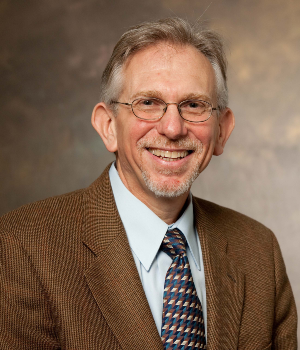
Professor, Department of Psychiatry, Yale University School of Medicine


Morris Bell, PhD is Emeritus Professor in the Department of Psychiatry at Yale University School of Medicine and Senior Research Career Scientist for the Rehabilitation Research and Development Service of the Department of Veterans Affairs, USA. He directs the Yale/VA Learning Based Recovery Center and the Veterans Integration to Academic Leadership (VITAL) program. Dr. Bell was recently selected by the World Health Organization to serve on their schizophrenia expert panel for the International Classification of Function, Disability and Health (ICF). He has been a researcher for 45 years exploring ways to restore cognitive and work capacity for people with severe and persistent mental illness. Dr. Bell has developed several learning-based interventions to promote recovery in schizophrenia and related disorders as well as in substance abuse disorders. He is the co-developer of the Bell Lysaker Emotion Recognition Test (BLERT), which was recently recommended by NIMH for clinical trials involving social cognition. He has also developed the Social Attribution Test- Multiple Choice (SAT-MC) as a measure of theory of mind. Dr. Bell is currently developing a measure of embodied cognition that uses physical tasks to assess cognition in motion. Funded by the National Science Foundation, this instrument uses motion capture technology to automatically score children and adults as they perform balance, gait, attention, response inhibition, working memory and set-shifting tasks.
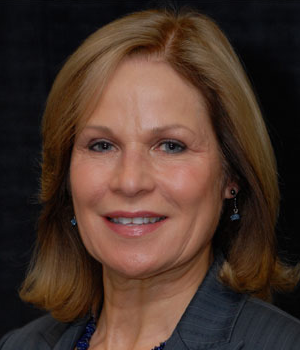
Director of Neuroscience Education, Scientific Learning


Martha Burns, PhD is a neuroscientist and leading expert on how children learn and has authored over 100 articles, four books, multiple book chapters, and the Pearson Assessment Burns Brief Inventory of Communication and Cognition. She speaks frequently on the importance of applying the science of learning in early childhood education, understanding the adolescent brain, and the K-12 classroom. Dr. Burns is an Adjunct Professor at Northwestern University and a Fellow of the American Speech-Language-Hearing Association and served on the medical staff of Evanston-Northwestern Hospital for 35 years. Her area of specialization is language and brain maturation from birth to adulthood. Dr. Burns’ most recent book, Cognitive and Communication Interventions, was released by Plural Publishing in October 2020.
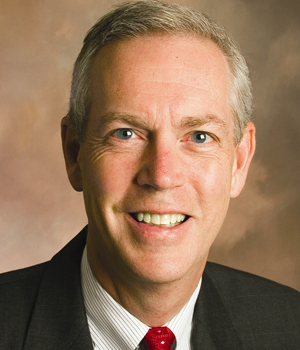
Managing Partner, Kingcedar Holdings


John H. Cammack is Managing Partner of Kingcedar Holdings, an investment holding company specializing in enterprises advancing brain fitness, SaaS business services and behavioral health. Mr. Cammack is in his fourth year serving as a Mentor-in-Residence at John Hopkins University, where he advises faculty and students on commercialization strategies.
From 1991 to 2009, Mr. Cammack was a senior executive at T. Rowe Price where he served as Division Head and member of the firm’s Operating Steering Committee, Institutional Marketing Steering Committee, Compliance Oversight Committee and the T. Rowe Price Investment Services Board.
Current corporate board assignments include Signal Vine and volunteer board assignments include Cure Violence, Venture for America – Baltimore (Chair), Safe Streets Baltimore (Chair), Creative Alliance and the Association of Baltimore Area Grantmakers.
Past board assignments include the Mutual Fund Education Alliance, the Foundation for Financial Planning, CFP Board of Standards, Open Human Foundation, Association of Baltimore Area Grantmakers and Phi Beta Kappa Investment Committee. In addition, John is an emeritus member of the Alpha Group, a study group of Wealth Management CEOs and industry thought leaders.
Mr. Cammack is a Phi Beta Kappa graduate of Denison University with a BA in History and received his MBA from Columbia University.

Founder & Chief Director, Center for BrainHealth, The University of Texas at Dallas


Sandra Bond Chapman, Ph.D., Founder and Chief Director of the Center for BrainHealth at The University of Texas at Dallas, Dee Wyly Distinguished University Professor in the School of Behavioral and Brain Sciences, is committed to enhancing human cognitive capacity and the underlying brain systems across the lifespan. A cognitive neuroscientist with more than 50 funded research grants and 200+ publications, Dr. Chapman is one of the pioneers who is creating the new field of brain health. Her team is defining, measuring, improving and scaling brain health fitness protocols to reach people around the world. Through her efforts, the Center for BrainHealth launched its Brain Performance Institute in 2017 as the translation arm to deliver rapidly emerging discoveries in cognitive brain health to the public. She spearheaded the UT Dallas BrainHealth Imaging Center, which opened in 2019 with a unique focus on developing objective measurements of gains in brain systems following interventions. Dr. Chapman is co-creator of The BrainHealth Project™, an international, multi-year collaboration of 32 of the world’s leading brain health experts uniquely focused on doubling peak brain performance, inoculating against decline and extending brain capacity to match our longer lifespan.
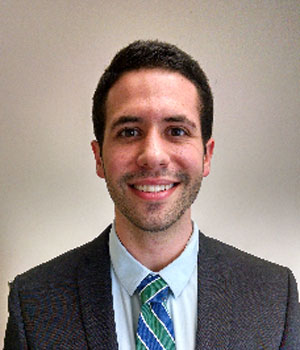
Senior Vice President of Behavioral Health Innovation, Mental Health America


Mr. Counts, JD is Senior Vice President of Behavioral Health Innovation at Mental Health America (MHA) and Clinical Assistant Professor in the Department of Psychiatry and Behavioral Sciences at the Albert Einstein College of Medicine. At MHA, Counts leads policy research and advocacy centered around addressing social and economic determinants of behavioral health, prevention and population-health strategies, and impacts of consumer technologies. Nathaniel's research has focused on aligning incentives to finance effective prevention and intervention in behavioral health, including publications in journals such as JAMA Pediatrics, Lancet Psychiatry, and the American Journal of Preventive Medicine. Nathaniel is an expert member of the Forum on Promoting Children's Cognitive, Affective, and Behavioral Health at the National Academies of Science, Engineering, and Medicine. Nathaniel received his J.D. cum laude from Harvard Law School, where he was a Petrie-Flom Center for Health Law Policy Student Fellow, and his B.A. in biology from Johns Hopkins.
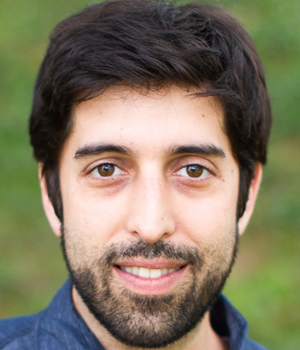
Co-Founder, Mindful Leader, Inc.


Mo Edjlali cofounded Mindful Leader Inc. in 2013, which brings together more than 500 leaders and change makers annually at the Mindful Leadership Summit. As founder of Telesangha he created a service and technology platform to support daily meditation programs. He has held management and consulting positions at NASA, InfoZen, FICO and Accenture. Edjlali is the Founder of TalentFamily, a technical staffing, recruiting and training company. He received his bachelor’s degree in Computer Engineering from Virginia Polytechnic Institute and State University.
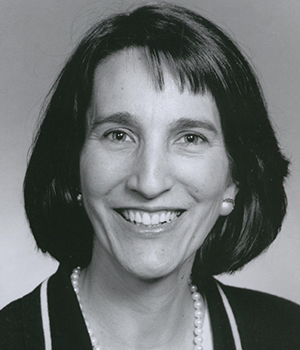
Board Member, National Center for Learning Disabilities


Shanti Fry serves on the board of the National Center for Learning Disabilities, and has a long-term interest in the practical application of neuroscience for those who face learning and attention challenges, including children exposed to trauma and other causes of learning disabilities. Through her work with the Neuromodulation Working Group, she has worked to advance the use of neuromodulation training in schools to enhance learning capacity in children. Fry was a director in the investment banking area of the Bank of Boston and its successors for 16 years and helped found the National Consumer Cooperative Bank. She earned her Bachelor of Arts and Master of Business Administration degrees from Harvard University.
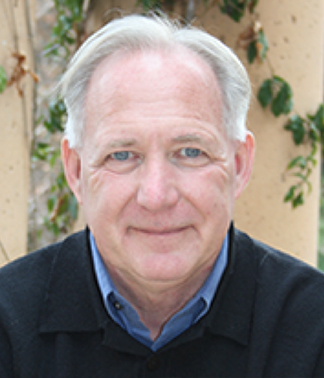
Professor, Virtual Human Interaction Lab, Stanford University


Walter Greenleaf, PhD is a research neuroscientist, professor, and medical product developer working at Stanford University. With over three decades of experience in the field of medical virtual reality technology, Greenleaf is considered an international leading authority and pioneer in the field. As a scientist and medical product developer, his focus has been on computer-supported clinical products, specializing in virtual reality and digital health technology to treat post-traumatic stress disorder, anxiety, traumatic brain injuries, strokes, addictions, autism, and other difficult problems in behavioral and physical medicine. Greenleaf founded and managed several medical product companies, including Pear Therapeutics, Virtually Better, InWorld Solutions, Cognitive Leap, and Greenleaf Medical. He recently served as the Director for the Mind Division, Stanford Center on Longevity, where his focus was on advancing research on age-related changes in cognition. He is currently a Distinguished Visiting Scholar at Stanford University’s mediaX program, and the Stanford Virtual Human Interaction Lab. In addition to his research at Stanford, Greenleaf is co-founder of Virtual Ventures and Cognitive Leap, Chief Science Advisor at Pear Therapeutics, and Director of Technology Strategy for the University of Colorado National Behavioral Health Innovation Center.
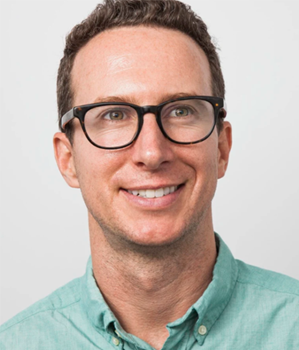
Founder, Openminded.org


Tanner Hackett, MBA, has co-founded multiple startups across the globe. He initially co-founded Lazada in Malaysia, which quickly became the largest commerce company in Southeast Asia and was purchased by Alibaba for $3.5 billion in 2016. Tanner went on to co-found Button in 2013, which has become the largest mobile-first affiliate marketplace in the world.
In addition to his entrepreneurial endeavors, Hackett is very active in the mental health community. He started Openminded.org as a means of accelerating research, collaboration, education, and awareness for this critical societal issue.
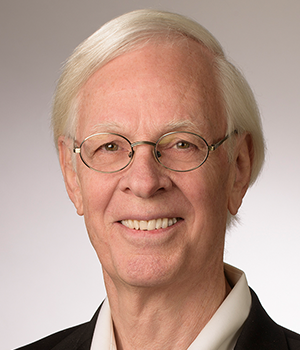
Psychiatrist and Health Care Consultant


Henry Harbin, MD, has served as CEO/ Chairman of two national behavioral health care companies: Magellan Health Services and Greenspring Health Services. At the time he was CEO of Magellan, it was the largest managed behavioral health care company in the U.S. managing the mental health and substance abuse benefits of approximately 70 million Americans. Dr. Harbin was also Director of the Mental Health Authority for the State of Maryland, member of the President’s New Freedom Commission on Mental Health, and co-chair of the National Business Group on Health’s workgroup to improve corporate employees’ behavioral health. Since 2004, he has provided health care consulting to numerous organizations, including AARP, MyndAnalytics, Interaxon, CNS Response, Curiosityville, Happify, Smart Brain Technology, ESS (Effective School Solutions), the Parity Implementation Coalition, Mental Health Association of Maryland, the Kennedy Forum, and The Path Forward for Mental Health and Substance Use. Dr. Harbin is a psychiatrist with more than forty years of extensive experience in the behavioral health field.
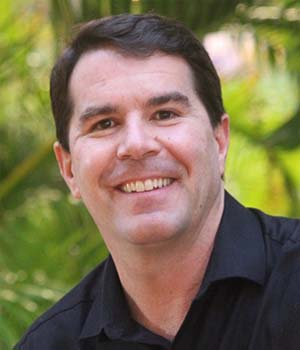
Managing Partner, Bridge Builders Collaborative


Charlie Hartwell, MBA, is the Managing Partner of Bridge Builders Collaborative, which invests in start-up companies in the mental health, consciousness, and spirituality spaces. A change agent and Harvard Business School graduate, Hartwell has served or led organizations in 14 different industries. Previous to Bridge Builders Collaborative, Charlie was President of Ideas to Go, an innovation-consulting firm helping Fortune 500 companies on the front end of their innovation cycle. His career has included Wall Street and corporate marketing stints at HJ Heinz and Pillsbury. In 1998, he formed YourExpedition, the first for-profit expedition company in U.S. history, launched by the historic Bancroft Arnesen Expedition across Antarctica by polar explorers Ann Bancroft and Liv Arnesen.
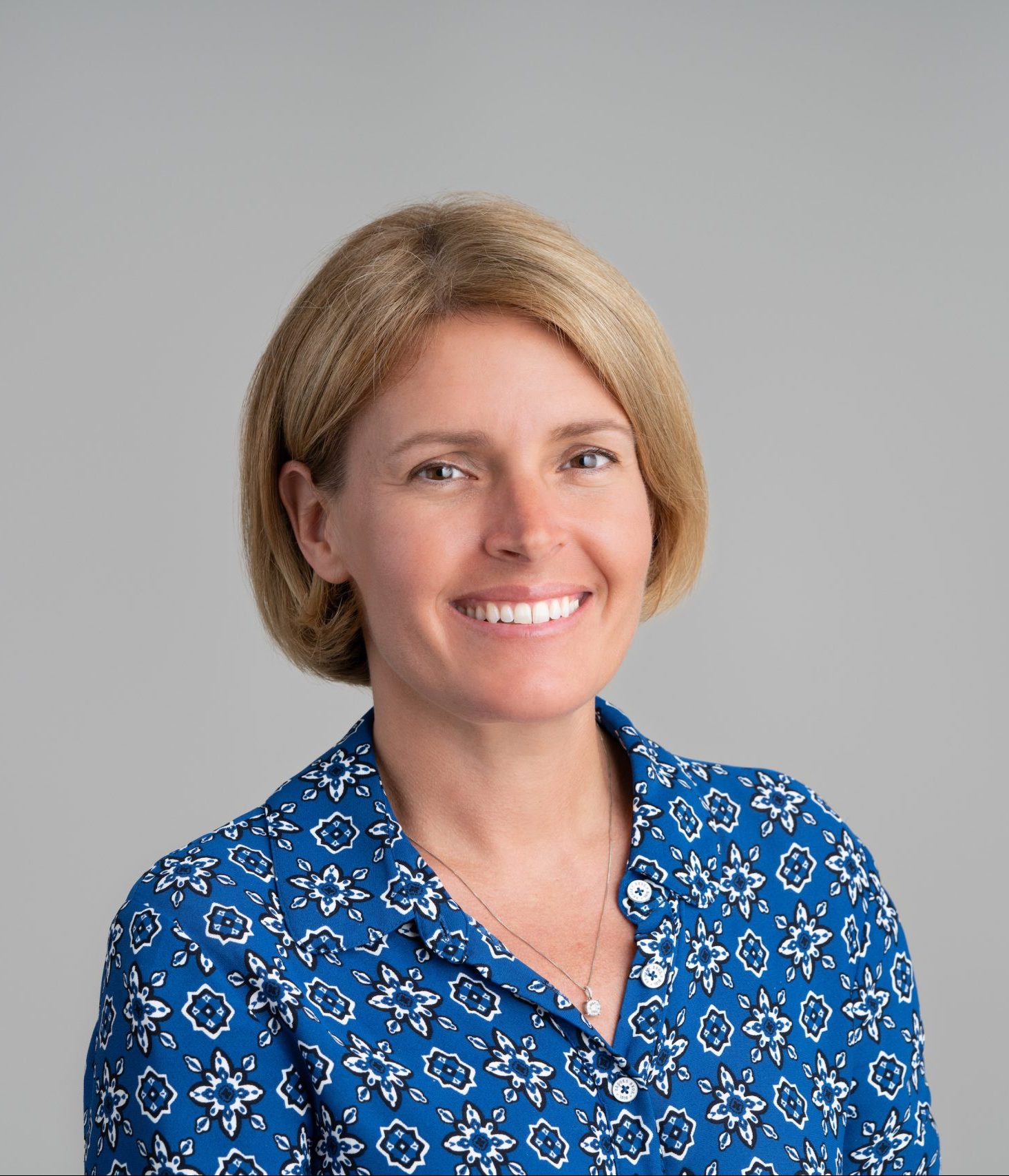
The Kennedy Forum


Amy Kennedy, MS, serves on the board of Mental Health America and is the Education Director for The Kennedy Forum; she also provides consultation services that emphasize evidence-based research and programming to facilitate policy change in the areas of education and mental health. An educator by training, Amy has over 15 years of experience working in public schools in New Jersey and Pennsylvania. She uses her experience as a teacher and a mother of five children to promote the importance of social and emotional learning in the development of mental wellness for children and adolescents. Her research interests include the early identification and intervention of mental health concerns in children, the use of brain fitness and mindfulness within school systems to foster and improve mental wellness, and the development of prevention programs that promote student social and emotional learning. Amy holds a Bachelor of Science degree in Elementary Education from Pennsylvania State University and a Master of Science in Environmental Education from Nova Southeastern University.

Journalist and Editor


Rik Kirkland is a leader in business publishing. As Director of Publishing, he led McKinsey & Company’s global print and online activities from 2008 to June 2020, growing its audience fivefold. From 2000-2005, Rik was the editor of FORTUNE magazine, which under his leadership was three times nominated as a finalist for general excellence by the American Society of Magazine Editors and won numerous other awards. Previously he served as FORTUNE’s Washington editor, Europe editor, International editor and Deputy Editor. A member of the Council on Foreign Relations, he has been a frequent guest on CNN and CNBC and a moderator at the WEF in Davos, FORTUNE’s Global Forum, Bloomberg’s New Economy Forum and the Microsoft CEO Summit. Currently Rik works with select clients on editorial priorities and serves as an advisor to McKinsey and the Edelman Trust Institute, on the board of the International Center for Journalists and plays in a rock band, The Prowlers.

Executive Director, International Arts + Minds Lab, Johns Hopkins University


Susan Magsamen is the founder and executive director of the International Arts + Mind Lab (IAM Lab), a pioneering neuroaesthetics initiative from the Brain Science Institute at Johns Hopkins University School of Medicine. Her body of work lies at the intersection of brain sciences and the arts—and how our unique response to aesthetic experiences can amplify human potential. In addition to her role at IAM Lab, she also serves as co-director of the NeuroArts Blueprint project in partnership with the Aspen Institute. Prior to founding IAM Lab, Magsamen worked in both the private and public sector, developing social impact programs and products addressing all stages of life—from early childhood to aging adulthood. Magsamen created Curiosityville, an online personalized learning world, acquired by Houghton Mifflin Harcourt in 2014 and Curiosity Kits, a hands-on multi-sensory company, acquired by Torstar in 1995. An award-winning author, Magsamen published seven books including The Classic Treasury of Childhood Wonder, The 10 Best of Everything Families, and Family Night (Family Stories). She is also the author of the Impact Thinking model, an evidence-based research approach to accelerate how we use the arts to solve problems in health, well-being, and learning. Magsamen is a Fellow at the Royal Society of the Arts and a strategic advisor to several innovative organizations and initiatives, including the Academy of Neuroscience for Architecture, the American Psychological Association, the National Association for the Education of Young Children, BrainFutures, Learning Landscapes, and Creating Healthy Communities: Arts + Public Health in America. She received her bachelor’s degree from Towson University and a master’s from Johns Hopkins University.
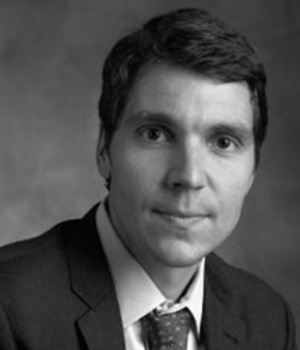
President & CEO, Pear Therapeutics


Dr. Corey McCann is the President and CEO of Pear Therapeutics, a company developing Prescription Digital Therapeutics (PDTs) for the treatment of severe medical conditions. The company’s lead products include, reSET® for the treatment of substance use disorder—the first PDT to receive marketing authorization from FDA to treat disease, and reSET-O® for the treatment of opioid use disorder—the first PDT to receive FDA Breakthrough Therapy designation. Previously, he was an investor with MPM Capital, where he evaluated healthcare investment opportunities, managed strategic partnerships, and oversaw strategy and execution at portfolio companies. Prior to MPM, he was an Engagement Manager with McKinsey & Company advising pharmaceutical, medical device, and biotechnology companies on the acquisition, development, and commercialization of life science technologies. Earlier investment experience was with RiverVest Venture Partners, performing diligence on early stage investments, and at NeuroInsights, evaluating brain-related technologies. Dr. McCann trained as a physician-scientist via the Medical Scientist Training Program. For his PhD, he studied the molecular biology of synapses at Harvard University and at Washington University in St Louis. He was also a post-doctoral researcher at the Massachusetts General Hospital where he developed imaging techniques for the visualization of the brain. Dr. McCann received his M.D. from Washington University in St. Louis. He graduated summa cum laude from The Pennsylvania State University where he was an Evan Pugh Scholar, receiving a B.S. in Biology with minors in neuroscience, biochemistry, and molecular biology. Dr. McCann is also a co-founder, advisor, or Board Director at multiple healthcare companies including Alcyone Lifesciences, NOUS Imaging, Resolute Bio, Selexys Pharmaceuticals, and Zillion Health.
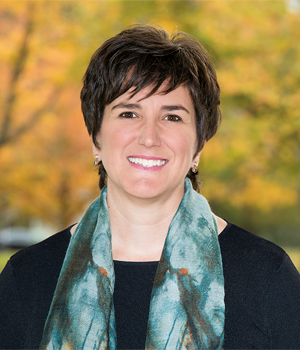
Chief Learning Officer, Kripalu Center for Yoga & Health


Holly McCormack is the Chief Learning Officer at Kripalu Center for Yoga & Health, where she oversees the development of faculty and curriculum across all Kripalu Schools and Kripalu Signature programming. Previously, McCormack served as BrainFutures’ Chief Strategy Officer, overseeing national efforts to advance proven innovations in brain fitness and treatment. She also consults on topics of whole-person education, and in this capacity was co-author on BrainFutures’ seminal 2019 issue brief, “Brain Fitness and Executive Function: Evidence-Based Interventions to Improve Student Outcomes” and on the Kennedy Forum’s 2015 brief, “Promoting Brain Health and Brain Fitness: A National Call for Action.” In a prior role at Kripalu, McCormack co-developed one of the nation’s first college-accredited mindfulness, social and emotional learning (SEL), and yogic-based semesters. She later served as Executive Director of The Goldie Hawn Foundation, bringing its mindfulness and SEL program to some of the largest school districts in the U.S. McCormack worked in higher education for twenty years, most recently as Dean for Career Development at Kenyon College, where she designed the College’s strategic approach to career education.
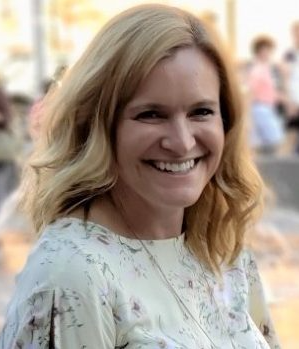
Director of Strategy and Technology, Clover Educational Consulting Group, Inc.


Mimi McFaul, PsyD is a clinical psychologist, mental health consultant, and behavioral health tech strategist currently serving as the Director of Strategy and Technology for the Clover Educational Consulting Group, Inc. She traces her way via a winding career path from work in the corrections/forensic arena, rural behavioral health workforce development and systems improvement, to the emerging digital mental health start-up space. McFaul most recently served as Director of Digital Initiatives, and Co-Founder of the Tech Innovation Network (TIN) at the National Mental Health Innovation Center. Previously she was Vice President of Campus Partnerships at Grit Digital Health, creating a mental health fitness center for college students from concept to product. McFaul also served for more than 10 years as the Director of Mental Health at the Western Interstate Commission for Higher Education.
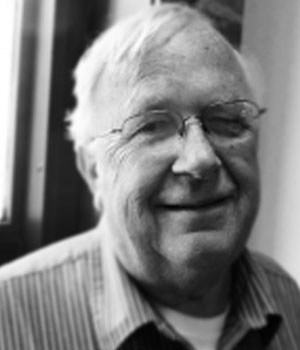
Chief Science Officer, Posit Science


Dr. Michael Merzenich is the brain behind BrainHQ and the author of Soft-Wired: How the New Science of Brain Plasticity Can Change Your Life. For nearly five decades, he has been a leading pioneer in brain plasticity research. As co-founder and Chief Scientific Officer of Posit Science, Michael Merzenich heads the company’s science team.
Dr. Merzenich has published more than 150 articles in leading peer-reviewed journals, and received numerous awards and prizes, including the Kavli Prize in 2016. He has been granted nearly 100 patents, and he and his work have been highlighted in hundreds of books about the brain, learning, rehabilitation and plasticity.
Dr. Merzenich earned his bachelor’s degree at the University of Portland and his PhD at Johns Hopkins. He completed a post-doctoral fellowship at the University of Wisconsin in Madison before becoming a professor at the University of California, San Francisco. In 2007, he retired from his long career at UCSF as Francis A. Sooy Professor and Co-Director of the Keck Center for Integrative Neuroscience. He was elected to the National Academy of Sciences in 1999 and the Institute of Medicine in 2008.
In 1996, Dr. Merzenich was the founding CEO of Scientific Learning Corporation, which markets and distributes software that applies principles of brain plasticity to assist children with language learning and reading.

Journalist and Author


Donna Jackson Nakazawa is an award-winning journalist and internationally-recognized speaker whose work explores the intersection of neuroscience, immunology, and human emotion. She is the author of six books, including her newest, The Angel and The Assassin: The Tiny Brain Cell That Changed the Course of Medicine (Ballantine, January 2020), which illuminates the newly-understood role of microglia in influencing our physical and mental health. Hailed as "riveting," "stunning," and "visionary," The Angel and the Assassin elucidates the biological basis behind the mind-body connection. Her writing has been published in Wired, The Boston Globe, Stat, The Washington Post, Health Affairs, Aeon, More, Parenting, AARP Magazine, Glamour, and elsewhere. In addition to her work as a science journalist, Donna has been a keynote speaker at numerous universities, conferences and hospitals. She has appeared on The Today Show, National Public Radio, NBC News, and ABC News.
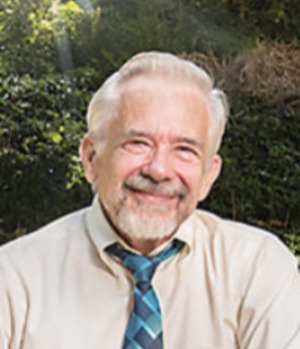
Psychologist, Johns Hopkins Center for Psychedelic & Consciousness Research


William A. (Bill) Richards is a psychologist in the Psychiatry Department of the Johns Hopkins University School of Medicine, Bayview Medical Center, where he and his colleagues have conducted research with psilocybin during the past 21 years. He also serves as a trainer of psychedelic therapists and researchers at the California Institute of Integral Studies, at the Aquilino Cancer Center and, through Sunstone Therapies, consults with oncology and palliative care centers as they design and implement treatments with psychedelic psychotherapy. His graduate degrees include M.Div. from Yale Divinity School, S.T.M. in the psychology of religion from Andover-Newton Theological School and Ph.D. from Catholic University, as well as studies with Abraham Maslow at Brandeis University and with Hanscarl Leuner at Georg-August University in Göttingen, Germany, where his involvement with psilocybin research originated in 1963. From 1967 to 1977, he pursued psychotherapy research with LSD, DPT, MDA and psilocybin at the Maryland Psychiatric Research Center, including protocols designed to investigate the promise of psychedelics in the treatment of alcoholism, depression, narcotic addiction and the psychological distress associated with terminal cancer, and also their use in the education of religious and mental-health professionals. From 1977-1981, he was a member of the psychology faculty of Antioch University in Maryland. His publications began in 1966 with “Implications of LSD and Experimental Mysticism”, coauthored with Walter Pahnke. His book, Sacred Knowledge: Psychedelics and Religious Experiences, now translated into multiple languages, was released by Columbia University Press in 2016.

Co-Founder and CCO, BrainMind; Co-Founder and President, EYOL


Diana Saville is Co-Founder and CCO of BrainMind, an impact accelerator for brain science. Diana also cofounded and leads a science and technology entrepreneurship program for low-income college students called Entrepreneur of Your Own Life (EYOL), and she is the Director of the Global Leadership Incubator (GLI), a partnership with the H. H. Dalai Lama which provides scholarship opportunities for exceptional Tibetan refugees. Formerly the Chief Innovation Officer for the Angiogenesis Foundation, Diana is an expert in creative communication of complex scientific concepts. She develops educational media for labs at the MIT, Harvard, and MGH, and organizes international expert summits on scientific and medical topics. Her creative work has been featured in the Museum of Modern Art in New York, the Nobel Museum in Stockholm, at TED conferences, and at the World Economic Forum. Diana studied biochemical sciences at Harvard College and began her creative work as a scientific animator while pursuing a PhD in molecular and cellular biology at the University of California, Berkeley.
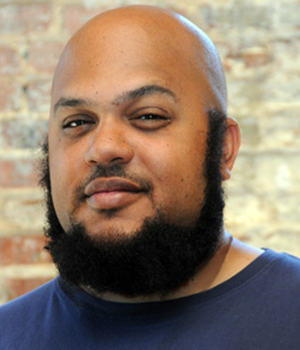
Co-Founder, Holistic Life Foundation


Ali Smith was born and raised in Baltimore, Maryland. He is a graduate of the Friends School of Baltimore and the University of Maryland, College Park. Ali has almost 20 years’ experience teaching yoga, mindfulness, and meditation internationally to a broad demographic spectrum that includes schools, retreat centers, wellness centers, mental crisis facilities, detention centers, drug treatment centers, the corporate setting, as well as private one-on-one sessions. He co-founded the Holistic Life Foundation (HLF) in 2001. During his tenure as Executive Director, his leadership helped guide HLF to grow to an organization that employed 50 people and had an operating budget of over $2 million. He is a published author, has written several curriculums, and is a pioneer in the fields of yoga and mindfulness in education, as well as trauma informed yoga and mindfulness—having developed best practices that are used around the world. His work has been featured on CBS News, CNN, NBC Nightly News, PBS, as well as in Oprah Magazine and Forbes. Ali is also a co-host of the Look Again Podcast and Co-CEO of the Involution Group which offers corporate, individual and family mindfulness coaching and programs.
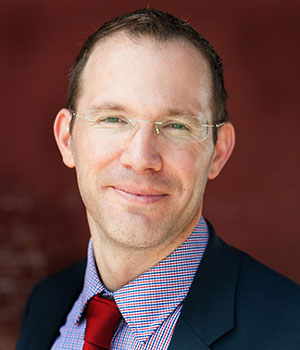
Founder, The Brain Always Wins LLC


John Sullivan, PhD, founder of The Brain Always Wins LLC, is a sport scientist and clinical sport psychologist with over twenty years of clinical and scholarly experience including sixteen years with the New England Patriots of the National Football League coordinating sport science and directing clinical sport psychology services. He holds appointments for the National Collegiate Athletic Association (NCAA), as well as being a consultant to the English Premier League (EPL), the National Football League (NFL/NFLPA), the elite military of the United States Special Operations Command (USSOCOM), and the National Aeronautics and Space Administration (NASA). He is also a visiting scholar and sport scientist at the Queensland Academy of Sport/Australian Institute of Sport and a visiting professor at the Queensland University of Technology within the Biomedical Sciences, Neuroscience, and Psychology departments in Brisbane, QLD, Australia. Domestically, Dr. Sullivan serves as an Instructor/Supervisor for Brown University Medical School Sports Medicine Fellowship as well as a Scientific Advisory for seven technology companies within the health, exercise, and elite sport sectors, providing support and oversight throughout the development process. Dr. Sullivan is a frequent contributor to scientific and mainstream media regarding sport science and sports medicine. He is the co-author of the book, The Brain Always Wins, which focuses on the latest sport psychology, cognitive science, and neuroscience related to optimal brain performance and health.
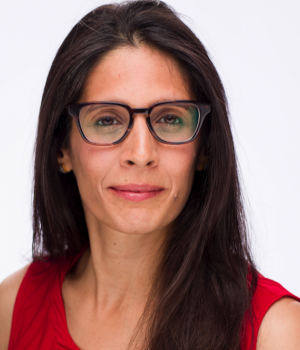
Founder and Chief Scientist, Sapien Labs


Tara Thiagarajan, PhD is Founder and Chief Scientist of Sapien Labs, a research-based nonprofit with the broad mission to understand and enable the human mind. In particular Sapien Labs is focused on developing cross-disciplinary frameworks and tools and acquiring large scale global databases to accelerate understanding of how the diversity of life experience influences brain physiology and in turn cognitive and mental health outcomes. Dr. Thiagarajan has a PhD in Neuroscience from Stanford University, a BA in Mathematics from Brandeis University and an MBA from the Kellogg School of Management. She did her postdoctoral training at the Section on Critical Brain Dynamics at the NIH. She has also been a Visiting Scientist at NCBS in Bangalore, India and worked in the Strategic Scientific Planning & Management group at Bristol-Myers Squibb. In addition, she has founded and built companies aimed at broader inclusion of low-income communities where she has run labs focused on understanding the dynamics and behavior of these populations.
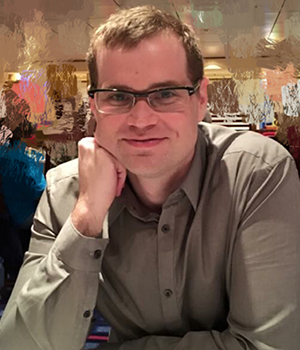
Managing Director, NeuroThrive


Mark Trullinger, PhD has a history of passionate and high energy leadership across a wide spectrum of professional settings with a focus on value-driven, culturally-sensitive, purposeful and innovative health care practice. He is currently the Managing Director of NeuroThrive, LLC in Maryland and a consultant to various academic researchers, clinicians and non-profits in the region. He has over 10 years of clinical practice and numerous publications including several on neurofeedback. He is certified by the Biofeedback Certification International Alliance (BCIA) in neurofeedback and QEEG certified at the Diplomate level. Dr. Trullinger is a part-time professor and researcher at Marshall University's graduate counseling program, works on CPT codes and insurance reimbursement for the International Society for Neuroregulation & Research (ISNR), and is a board member-at-large of the Foundation for Neurofeedback and Neuromodulation Research (FNNR). Dr. Trullinger completed his Master’s in Psychology: Clinical Neuroscience from Wales, United Kingdom on international scholarship and his PhD in International Psychology focused on the acceptance and adoption of medical device innovation in mental healthcare treatment.
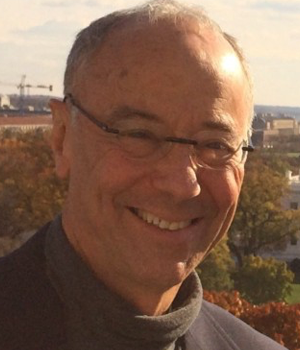
Professor Emeritus of Psychiatry & Senior Research Scientist, Yale University School of Medicine


Bruce Wexler, MD, is a Professor Emeritus of Psychiatry and Senior Research Scientist at Yale School of Medicine. In 40 years of neuroscience research, he has advanced the understanding of brain plasticity and been an international leader in developing computer-presented brain exercises to treat cognitive deficits in people with psychiatric illnesses. His patent-pending innovations led to the development of the ACTIVATE™ cognition cross-training program for children that integrates computer-presented and physical exercises to improve executive function skills essential for learning. For this work, he received an NIH Director’s Award for “high innovation, high impact, paradigm-changing medical research.” Dr. Wexler’s book Brain and Culture: Neurobiology, Ideology, and Social Change (MIT Press) has received international attention. Dr. Wexler graduated magna cum laude from Harvard University, studied psychiatry at Anna Freud’s Hampstead Clinic and neurology at the Institute of Neurology, Queen’s Square, London. He received his Doctor of Medicine from Albert Einstein College of Medicine and training in psychiatry at Yale.
President
Treasurer/Secretary
Director
Director
Director
Director